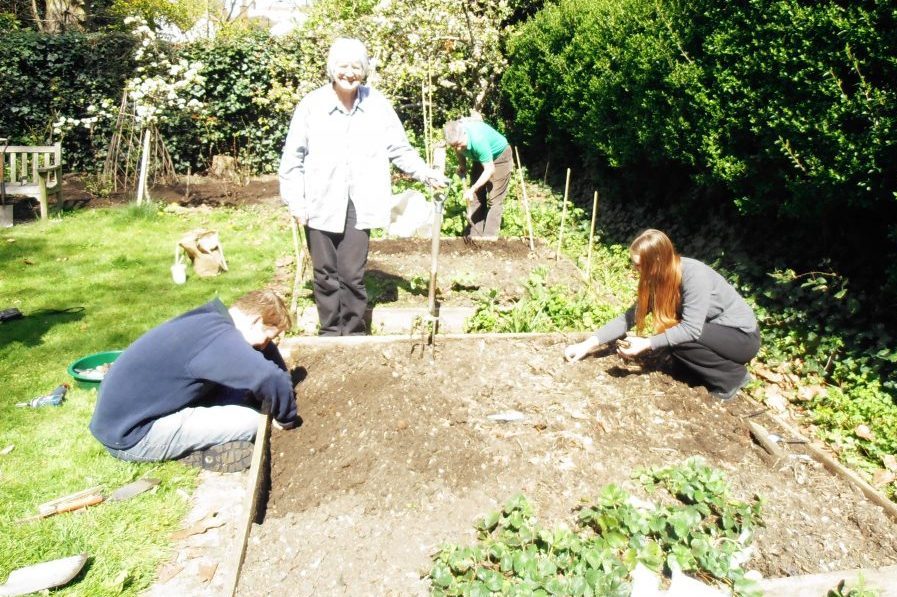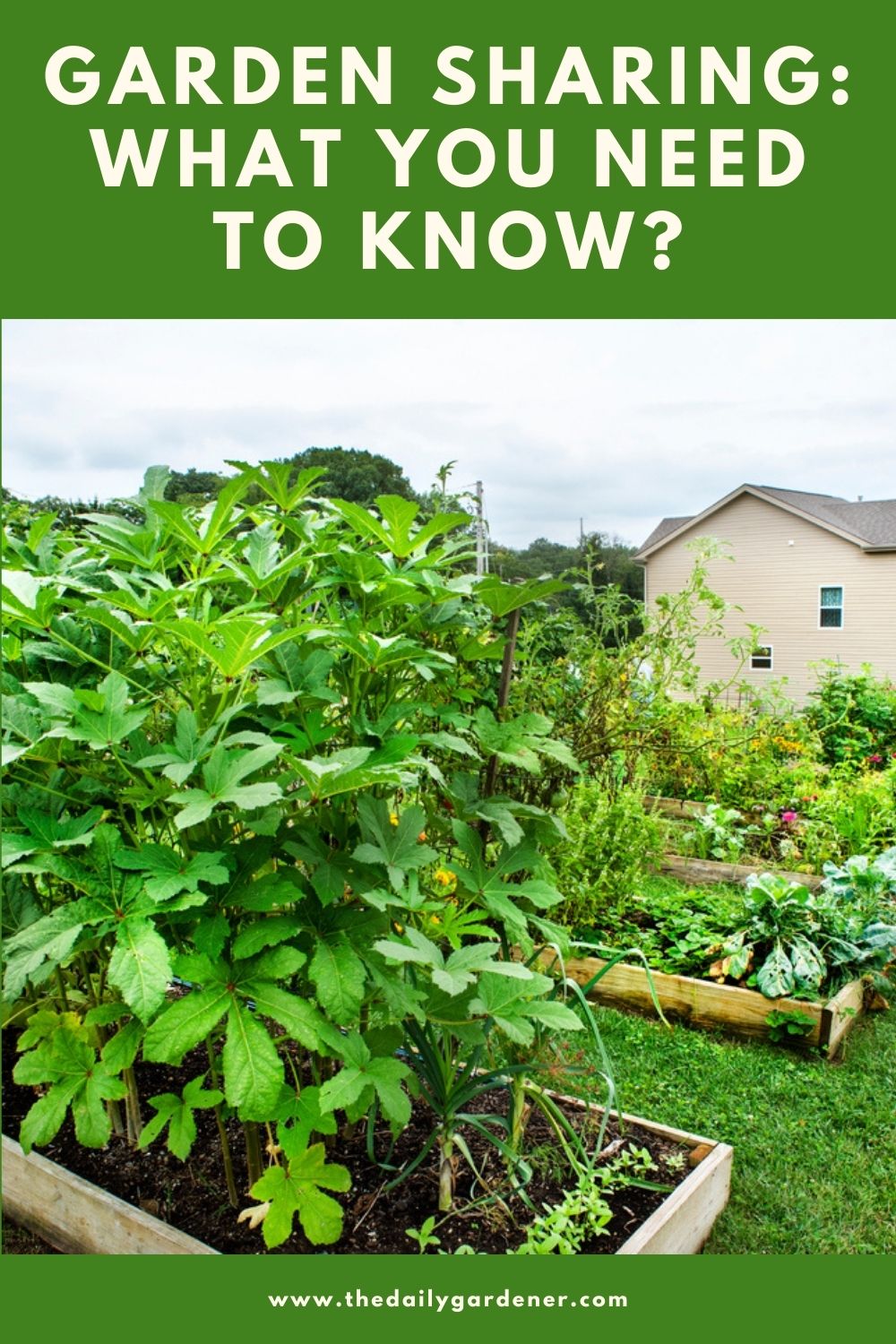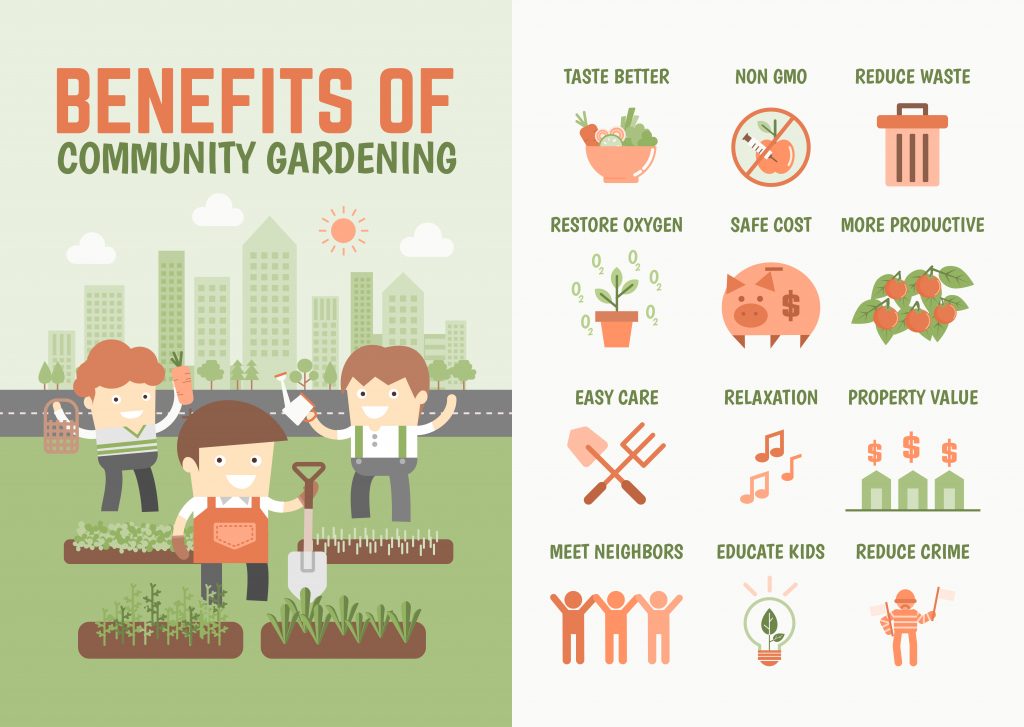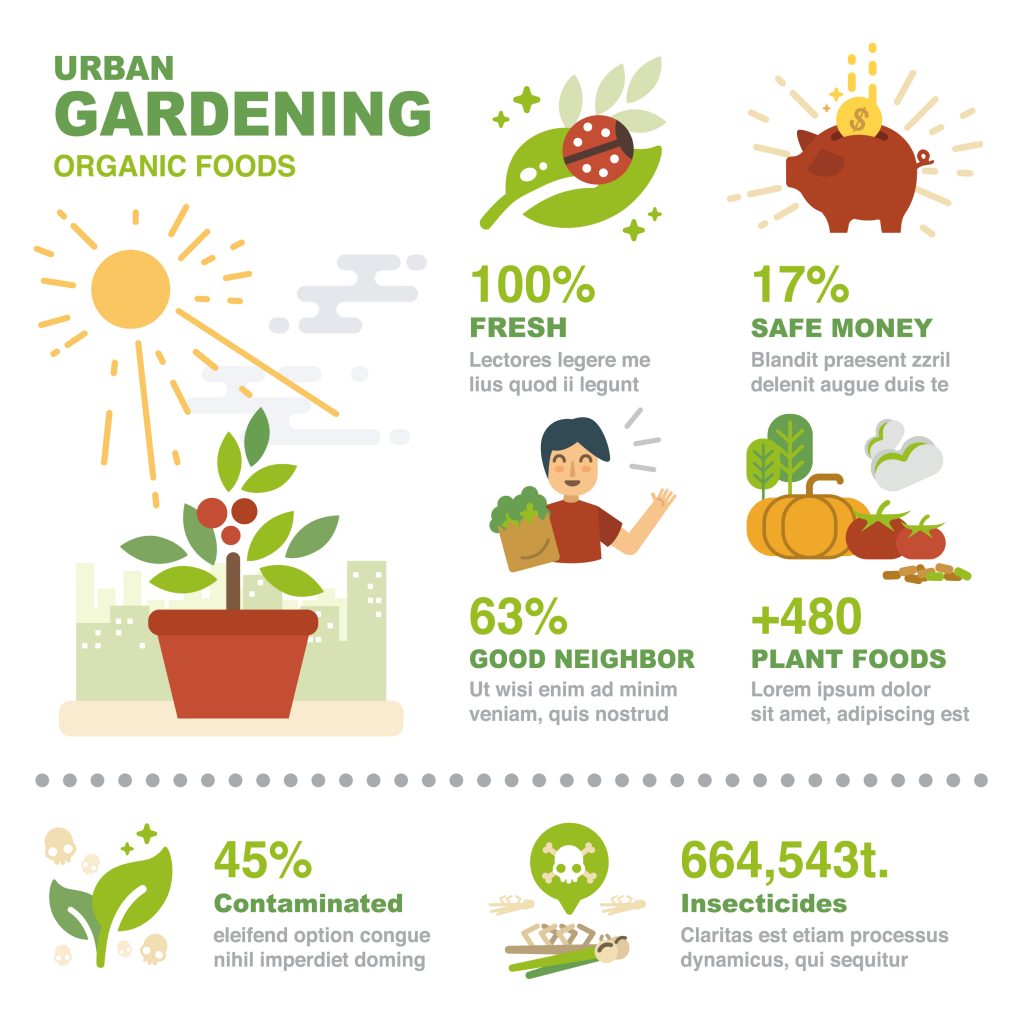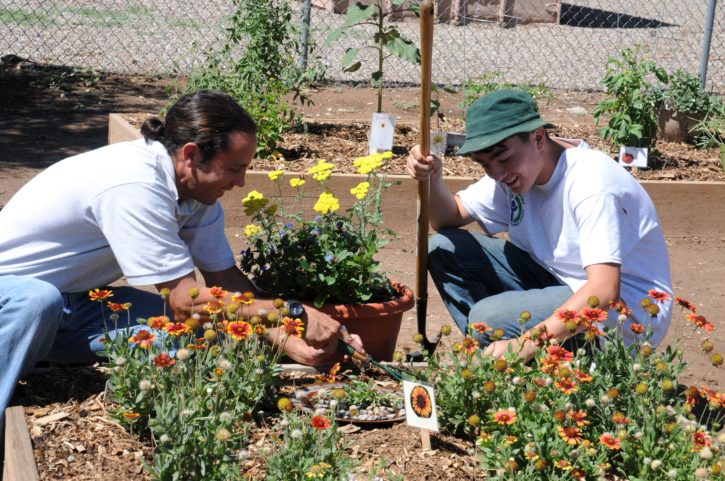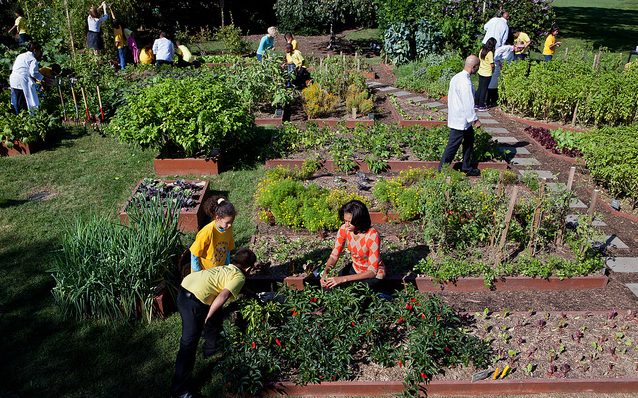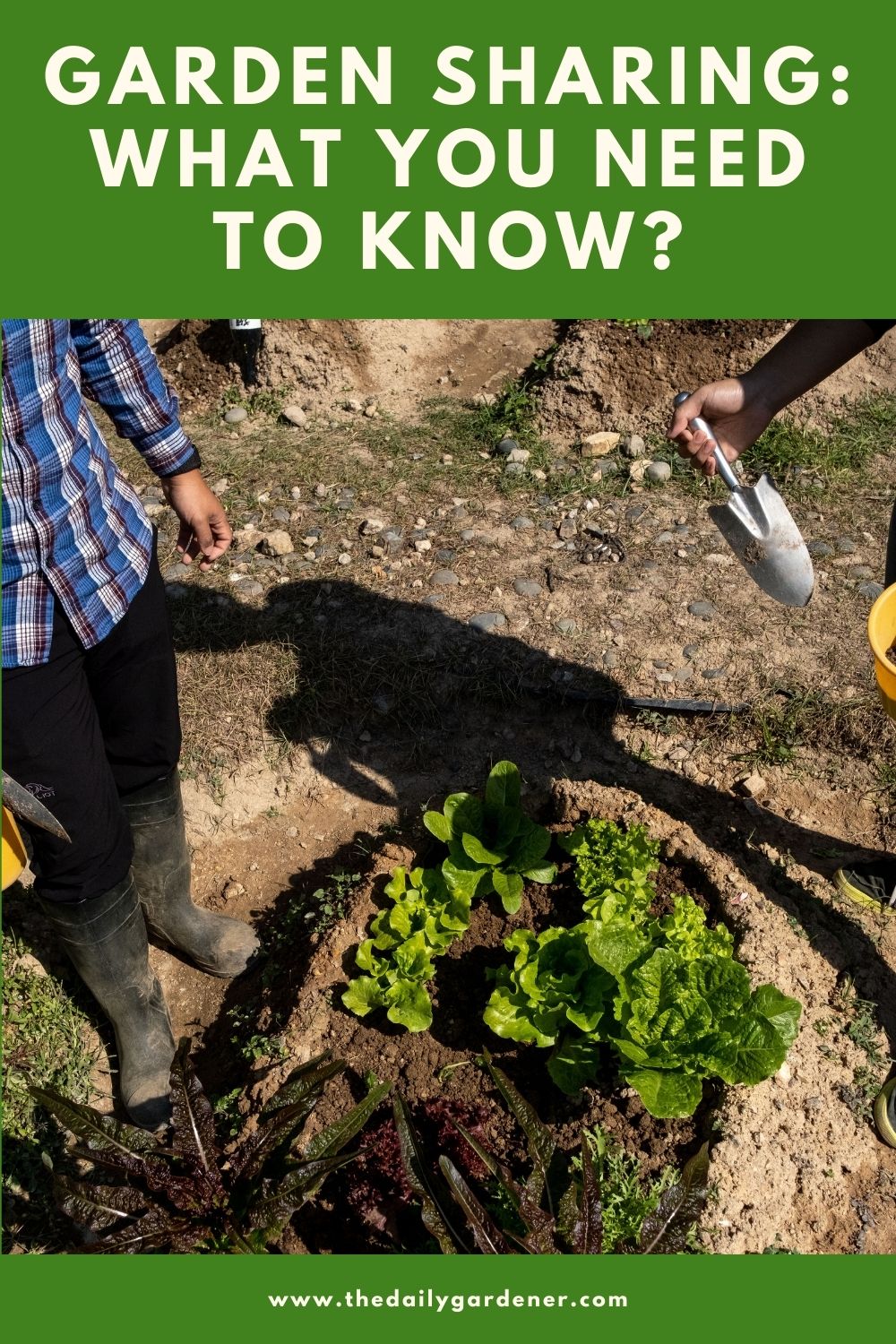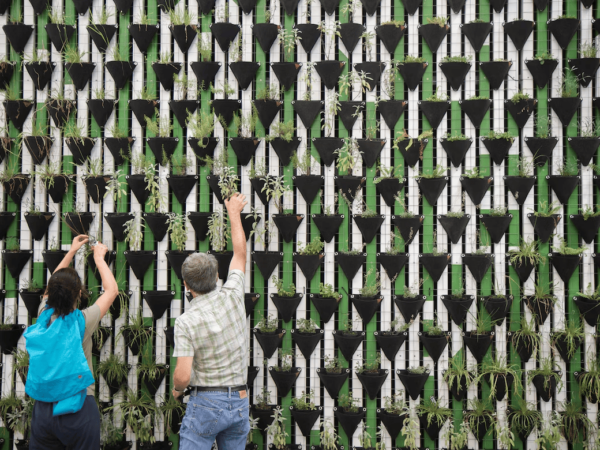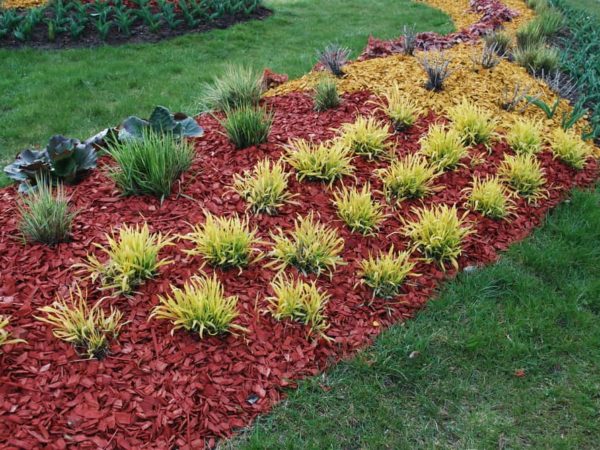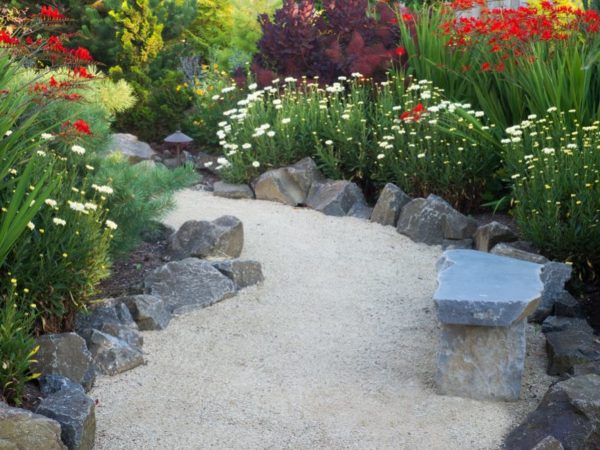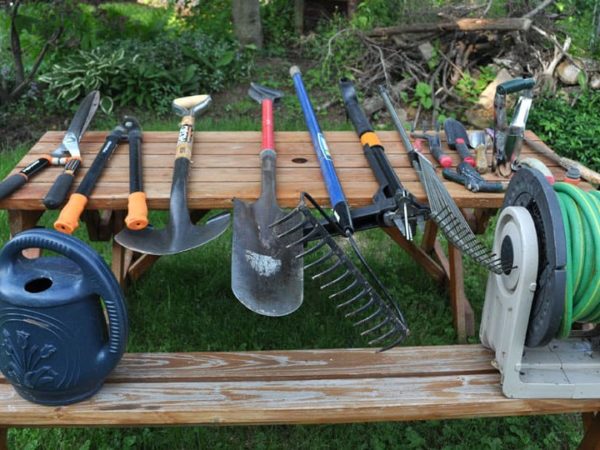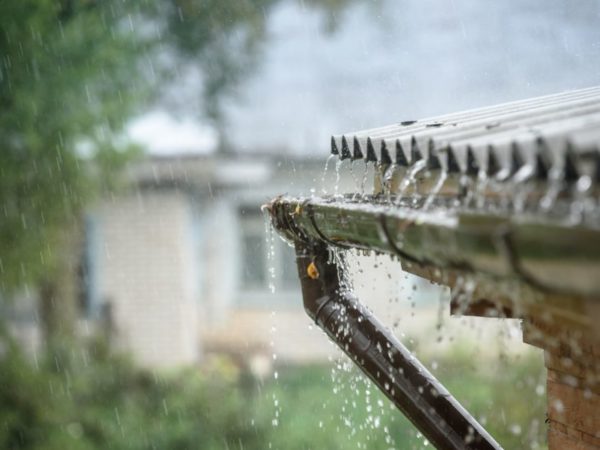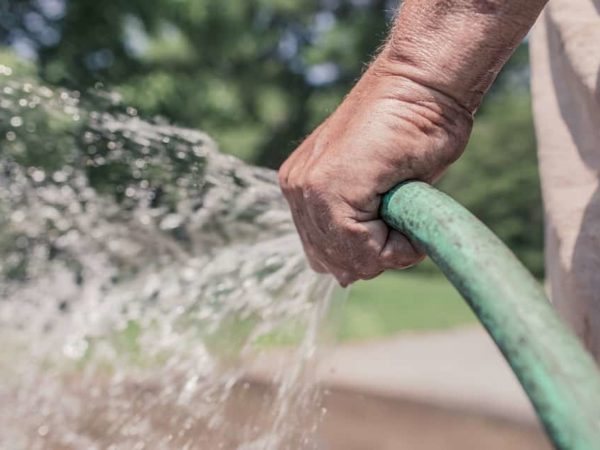Nowadays, with food prices rising and many of us making an effort to eat more healthily, more and more people are turning to growing their own food.
However, not everybody is lucky enough to have a plot of land where they can grow their own produce, and that’s where garden sharing comes in – so here’s everything you need to know about this perfect solution for garden owners and would-be gardeners alike.
Table of Contents
What is garden sharing?
Garden sharing at its most basic is simply pairing up a garden owner who can’t garden with someone who wants to garden but doesn’t have any land.
Perhaps the garden owner is too busy to look after it, or perhaps they’re too elderly – but for whatever reason, their garden is left untended, unproductive and turning to a jungle of weeds.
Instead of leaving the land in this state – and without having to pay for a professional gardener – garden sharing offers a way to have somebody else with the time and desire to look after the land, to the mutual benefit of both parties.
This is the perfect solution since urban dwellers and garden owners can pool their resources – land and labor – in an arrangement where both sides benefit. In fact, it’s such an obvious solution, and it’s hard to think of any downsides.
Garden sharing is most commonly found in North America, where many organizations already exist. While not quite as widespread in Europe, the concept is also starting to take hold.
For example, in the UK, where there is a waiting list of 86,000 for rented allotment plots, several garden sharing initiatives are also springing up to help those without land grow their own produce.
How does it usually work?
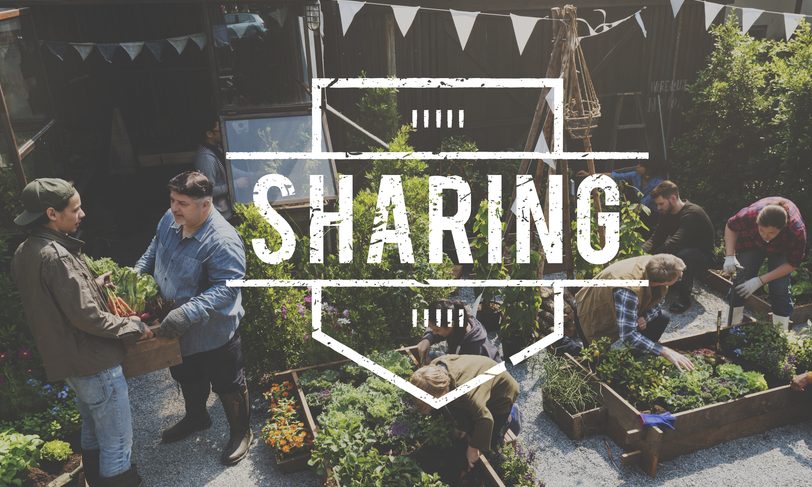
In return, the gardener keeps the plot of land in a tidy and presentable condition. Often, there may also be an agreement to share any fruit and vegetables grown there. However, there are no hard and fast rules, and anyone taking part in garden sharing is free to decide on their own conditions.
If the garden sharing arrangement is just between two parties, it can be as informal as a verbal agreement. For larger plots that may involve more people working together, sometimes it is better to draw up a written contract to avoid problems or misunderstandings later.
For example, if an owner allocates different parts of a garden to different gardeners, this needs to be very clear to everyone involved.
If multiple gardeners agree to share the labor when working on a plot of land and harvesting the produce, knowing precisely who is responsible for what and what is expected of each participant is extremely important.
There are many not-for-profit organizations that can help you set up a garden sharing arrangement. We will have a look at some of the most useful resources in a moment.
Advantages of garden sharing
Garden sharing is a perfect win-win situation with benefits for everyone involved and almost no drawbacks. Here are some of the reasons both sides of a garden sharing arrangement will find the deal advantageous.
-
Advantages for the garden owner
For the garden owner who doesn’t have time to look after their plot or who for any other reason can’t spend time tending to it, a garden share is the perfect way to have someone else come and keep it under control – for free.
On top of this, and according to the agreement in place, the garden should also start producing plenty of delicious fruit and veg for the owner and gardener to share. This is an excellent way to save money on weekly grocery bills.
-
Advantages for the gardener
For the gardener, it offers instant access to a plot of land to cultivate. Often, there is a long waiting list for plots of land to rent; becoming involved in a garden share can be a very good way to skip the queue.
Obviously, the primary benefit to the gardener is being able to grow food. For those living in cities where the only option is to try to grow things in window boxes, the ability to grow a greater variety of fruits and vegetables can mean significant savings on buying fresh produce.
Then there is the fact that you know exactly what fertilizers and pesticides are being used on your patch of garden. More and more people are choosing healthy, organic products. By growing food yourself, you can be sure no harmful chemicals are being used.
Finally, there is simply the pleasure and the health benefits of being outside and doing some manual work in the fresh air and the sunshine.
Spending the majority of your time in an office, in your urban apartment – or stuck in traffic traveling between them – is not good for your mental wellbeing. Spending time outside gardening is the perfect antidote.
-
Advantages for both
When becoming involved in a garden share, there is always the possibility of exchanging tips and gardening expertise. Perhaps the gardener is inexperienced while the owner is an old hand in the garden.
In such a situation, the exchange can be mutually beneficial, with the owner offering advice and helping the gardener improve his or her skills – although the owner should also be careful not to be too bossy or overbearing or it could lead to problems!
If the owner and gardener get on well, there is also the possibility of forming a new bond that goes beyond simply lending out a patch of land.
Even if the owner doesn’t work in the garden, there is always the chance for some friendly human contact as both sides discuss the plans for how the garden develops.
Many garden share partners find their relationship quickly develops into a friendship, and for some more elderly owners, sometimes the extra company when the gardener comes is particularly welcome.
Tips for garden sharing
While garden sharing has undoubted benefits for both parties, you still need to do it right to make it work. Here are some tips that will help you make a success of your arrangement.
1. Search online to find a garden or a gardener
If you are a garden owner or a gardener looking to become involved in a garden share, the first step is to have a look online to see if there are any organizations operating locally that can help you find somebody to pair up with.
See the section below for some useful resources that might help.
2. Take time to find someone who is a good fit
When you start looking for someone to do a garden share with, don’t feel pressured into accepting the first person you find.
Different people have different ideas – as well as different personalities – and taking a little bit of time to find someone who is a good fit is much better than just committing to the first person you meet.
Of course, you need to find someone whose garden is not too far away – but you should try to find someone you get on well with, someone who has similar ideas and expectations to you and someone you feel good about.
Setting up a garden share is the same as any partnership. There should be a certain amount of chemistry between you and a good feeling about getting started. If you don’t feel right about somebody, there’s a real chance your partnership won’t be as successful as you hoped.
3. Be clear about your expectations
For both parties, it is important to have clear expectations before you begin the arrangement.
Garden sharing doesn’t usually involve any money, but will you be sharing the produce grown in the garden? What will the split be? Will you share the fruit and vegetables 50-50 or do you prefer a different arrangement?
How about access to the garden? Will the gardener be able to just come and go at any time or are there any rules on this?
These are just a couple of points, but you need to think about these details form them the outset to be clear about what you are expecting from the arrangement. Don’t be afraid to write a list of points to help you remember them all.
4. Conduct an “interview”
Before entering into a garden sharing agreement, both sides should sit down together and talk things through. In some ways, this is a little like a job interview – although of course, it doesn’t need to be quite so formal!
By conducting an interview, both parties can evaluate the other side and decide whether they are a good fit. If you don’t get on or you think that conflicts are likely to arise between owner and gardener, there’s nothing wrong with deciding that it isn’t a good fit and looking elsewhere.
This is also the time to make explicit what you expect from the arrangement – and this is why you need to take the time to think about it beforehand. If you arrive at the meeting with your ideas clear in your head or written down, you will be able to set them out clearly and avoid problems later on.
5. Know what you want to grow
One area you should definitely cover is what both sides of the agreement expect to be grown in the garden. In most cases, people tend to grow a fairly standard range of fruit and vegetables – and this is also largely determined by the climate.
However, if you broach the topic and find both parties have wildly differing ideas about what should be grown, this might be a sign that there could be trouble further down the line.
6. Consider drawing up a written contract
For many people, a spoken agreement is sufficient and there may never be any need for anything else. However, if you feel that the agreement you reach would be better in writing, you might consider drawing up a formal contract.
If you run into problems later on, this will give both sides something to fall back on in the case of a dispute.
Useful websites for garden sharing
Here is a list of useful websites that you might find helpful.
a). Shared Earth
https://www.sharedearth.com/
This is one of the best resources available for finding a garden sharing partner. This website will help you locate anybody interested in your local area and you will instantly be able to see if you are a good match.
The website allows you to fill in your profile – making it much easier for suitable pairs to get in touch. You can communicate through the website and discuss your requirements and expectations, and then if both sides feel positive, you can take it from there.
One of the best things about this site is that it takes care of much of what we mentioned in the tips section. Most of the things you need to consider before starting a garden share are covered by the site, helping ensure you find a good match and that everything goes smoothly.
b). Lendand Tend
http://www.lendandtend.com/
This site is a similar resource for people in the UK. While the site is a little more basic than sharedearth.com, it has a similar goal of helping connect people who own disused land and those who want to use it to grow fruit and veg.
c). Urban Garden Share
http://www.urbangardenshare.org/
This is a useful site that can help you with many aspects of garden sharing, including finding a partner in below places:
- Seattle
- Whatcom Co, Wa
- Bellingham, Wa
- Louisville, Ky
- Atlanta, Ga
- Boise, Id
- Santa Cruz, Ca
- Sonoma County, Ca
- Spokane
It is also full of tips that can help you make the most of your garden share. Check it out for information about what to plant, how to help your fruit and veg grow well and how to take care of pests – along with much more.
d). Garden Share
http://www.gardenshare.org/
Another helpful site that introduces a different take on the garden share concept. The idea is that with the help of the community and the pooling of resources, everybody should be able to eat healthily, and nobody should ever go hungry.
A good resource that shows the power of cooperation and volunteering within the community. Based in New York State.
Make use of unused land to the benefit of everyone
Garden sharing is a great example of how everyone can benefit when people work together. Rather than have unused plots of land sitting right next to people who are desperate to grow things, garden sharing brings people together – and ensures that everybody comes out a winner.
Don’t forget to pin it!

